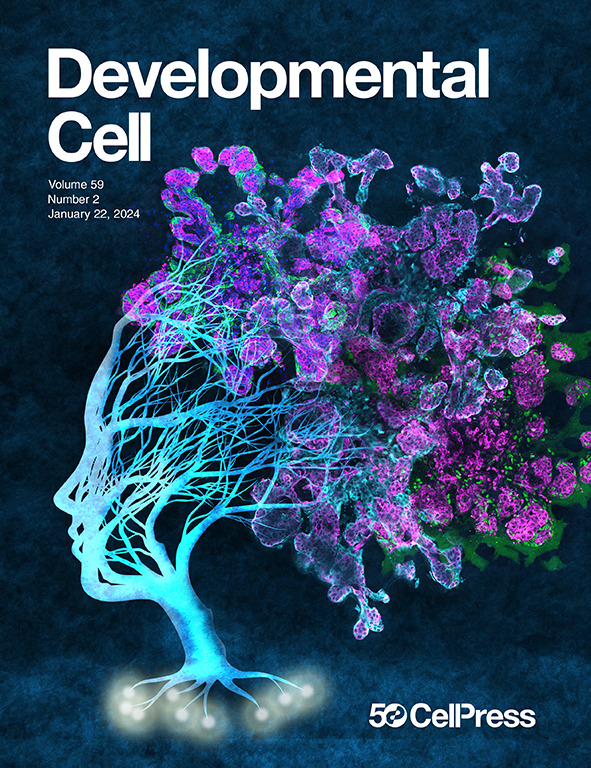KIF2C通过解聚聚谷氨酰化微管促进紫杉醇抗性
IF 10.7
1区 生物学
Q1 CELL BIOLOGY
引用次数: 0
摘要
紫杉醇的长期疗效受到化疗耐药的限制。在这项研究中,我们阐明了激酶家族成员2C (KIF2C)的分子机制,KIF2C是一种众所周知的微管解聚合酶,有助于三阴性乳腺癌(TNBC)化疗耐药的发展。我们观察到,在紫杉醇耐药的人和小鼠乳腺癌细胞中,KIF2C、微管蛋白酪氨酸化和多谷氨酸化水平升高。此外,这些耐药细胞对多种微管靶向药物(mta)具有交叉抗性。我们证明,即使在紫杉醇存在的情况下,KIF2C也能优先解聚聚谷氨酰微管蛋白。为了解决这个问题,我们开发了7S9,一种KIF2C的化学抑制剂,可以阻止KIF2C从微管中解离。7S9联合紫杉醇可显著降低小鼠化疗耐药TNBC模型的肿瘤发生。此外,7S9降低了癌细胞对几种临床可用mta的化疗耐药。我们的研究结果阐明了KIF2C介导的化学耐药的分子机制,并强调了KIF2C是对抗TNBC交叉耐药的一个有希望的靶点。本文章由计算机程序翻译,如有差异,请以英文原文为准。

KIF2C promotes paclitaxel resistance by depolymerizing polyglutamylated microtubules
The long-term effectiveness of paclitaxel is limited by chemoresistance. In this study, we elucidate the molecular mechanism by which kinesin family member 2C (KIF2C), a well-known microtubule depolymerase, contributes to the development of chemoresistance in triple-negative breast cancer (TNBC). We observed elevated levels of KIF2C, tubulin tyrosination, and polyglutamylation in human and mouse breast cancer cells resistant to paclitaxel. Additionally, these chemoresistant cells possessed cross-resistance to diverse microtubule-targeting agents (MTAs). We demonstrated that KIF2C preferentially depolymerizes polyglutamylated tubulin, even in the presence of paclitaxel. To counter this, we developed 7S9, a chemical inhibitor of KIF2C, that prohibits the dissociation of KIF2C from microtubules. The combination of 7S9 and paclitaxel significantly reduced tumorigenesis in chemoresistant TNBC model in mice. Moreover, 7S9 diminished cancer cell chemoresistance to several clinically available MTAs. Our findings elucidate the molecular mechanism of KIF2C-mediated chemoresistance and highlight KIF2C as a promising target for combating cross-resistance in TNBC.
求助全文
通过发布文献求助,成功后即可免费获取论文全文。
去求助
来源期刊

Developmental cell
生物-发育生物学
CiteScore
18.90
自引率
1.70%
发文量
203
审稿时长
3-6 weeks
期刊介绍:
Developmental Cell, established in 2001, is a comprehensive journal that explores a wide range of topics in cell and developmental biology. Our publication encompasses work across various disciplines within biology, with a particular emphasis on investigating the intersections between cell biology, developmental biology, and other related fields. Our primary objective is to present research conducted through a cell biological perspective, addressing the essential mechanisms governing cell function, cellular interactions, and responses to the environment. Moreover, we focus on understanding the collective behavior of cells, culminating in the formation of tissues, organs, and whole organisms, while also investigating the consequences of any malfunctions in these intricate processes.
 求助内容:
求助内容: 应助结果提醒方式:
应助结果提醒方式:


